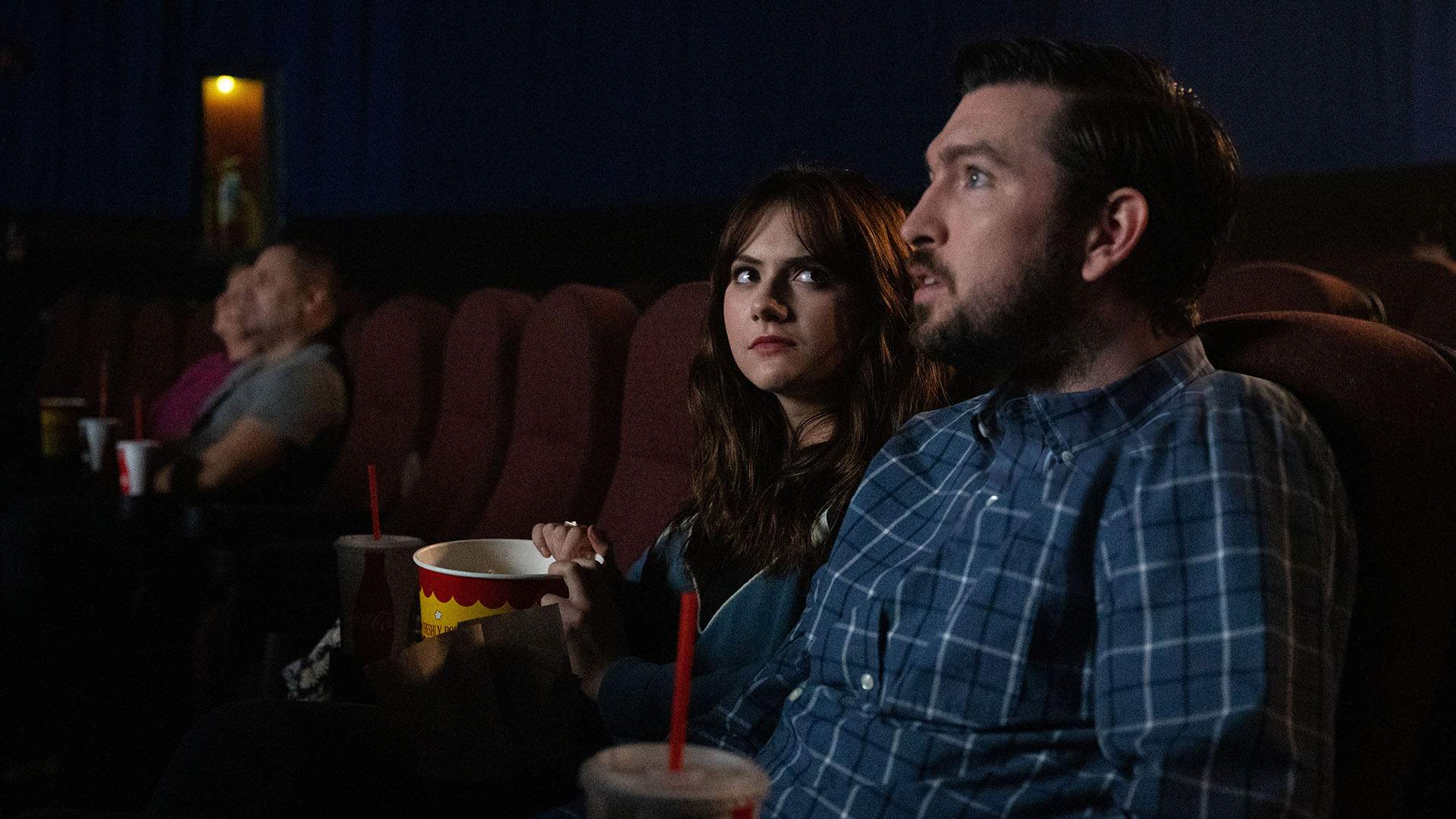Turning a Viral Short Story Everyone Has Read (and Debated) Into a Film: Director Susanna Fogel Talks 'Cat Person'
It's the movie that was always going to happen, but it doesn't just stick to the 'New Yorker' short story about modern dating that became a 2017 sensation.
Sitting down to watch Cat Person isn't a passive experience. It isn't an interactive movie, but the bulk of the film's audience isn't coming to it as a blank slate. They've read Kristen Roupenian's viral New Yorker short story from 2017, because everyone has. They've seen the discourse that it started, and potentially engaged in the debate that's swelled ever since, too. They remember how the 7000-word piece arrived at the ideal #MeToo moment, capturing the intricacies of modern dating, gender power dynamics, text-first communications, and mediating not just our lives but our loves through screens one jokey SMS and flirty emoji at a time.
As a feature, Cat Person isn't just about bringing the tale of 20-year-old college student Margot and 33-year-old Robert, who she first meets serving him snacks at her cinema job, to the screen, then. Six years have passed since Roupenian's story became the only thing that anyone was talking about, especially online, with the whole Cat Person phenomenon now about more than just the tale itself. In her third movie as a director after 2014's Life Partners and 2018's The Spy Who Dumped Me — and also helming episodes of Utopia, The Flight Attendant and The Wilds, plus writing Booksmart as well — that's also what filmmaker Susanna Fogel set out to capture with Michelle Ashford's (Masters of Sex, The Mayfair Witches) script.
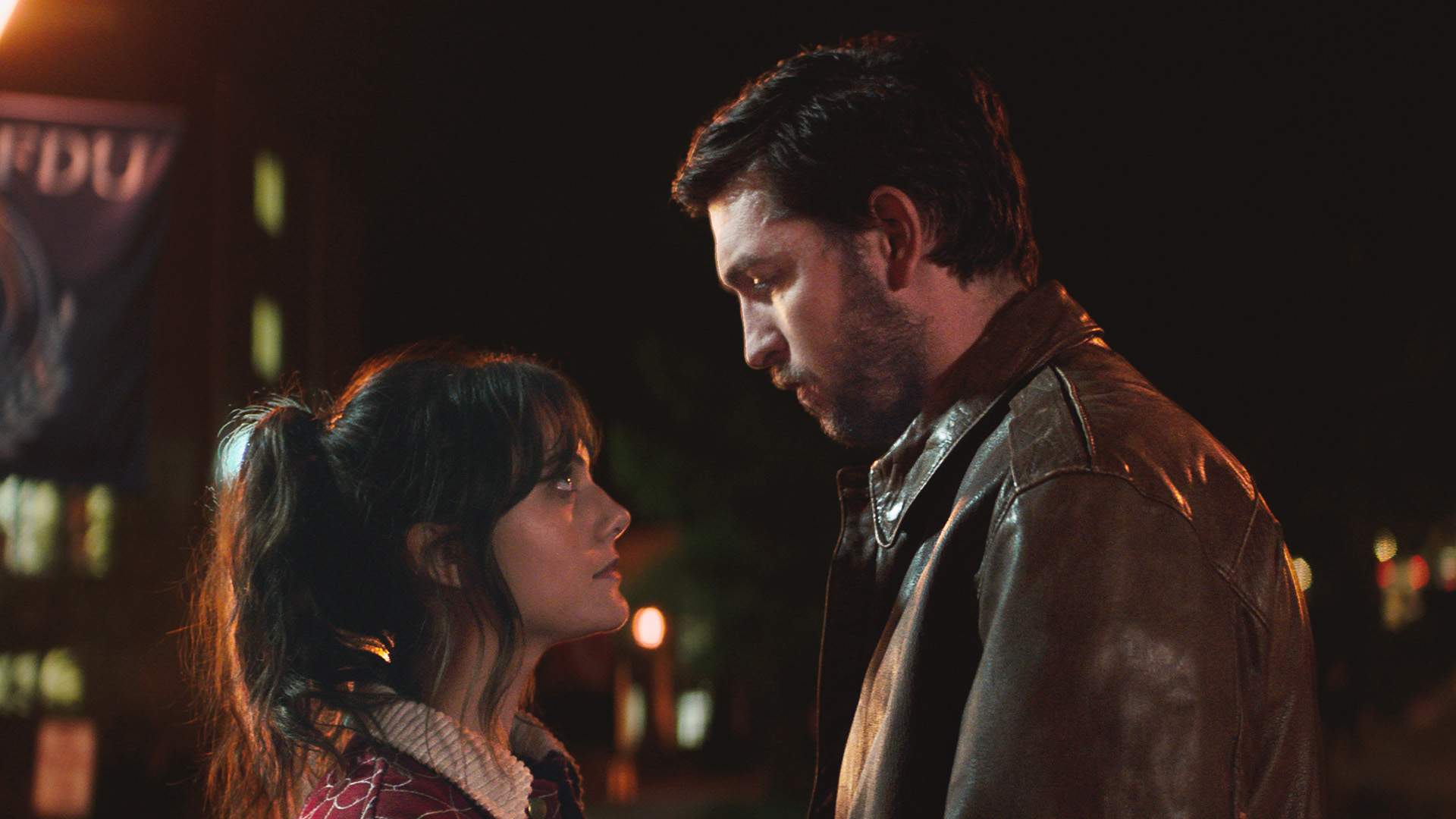
"There's always a fear with anything that people feel strongly about, and would get really passionate about, that you're going to let them down. I think that with this in particular, I had to release myself a bit from the notion that everyone is going to love this adaptation — because the truth is not everybody loved the story, and not everyone loves any movie, really," Fogel explains to Concrete Playground. "I also have to take my best shot of trying to bring this story into the next generation for a group of people who many of whom were too young to read the story. The Margots of today were 13 when the story came out, so this is a moment that I wanted to share the story with them in this format."
"But there's always a fear of it. You of have to let it go. You have to say 'I'm going to do my best to honour the material, and if I can create the feeling that I got reading the story in an audience, then that's what I can do'," Fogel continues.
"There are going to be details that aren't what people pictured. Some people are going to want it to be a faithful adaptation of the story because they just want to see that story the same way. And Michelle and I, and ultimately Kristen, really believed that there's another chapter to the story that's happened culturally since 2017 — people exhausted themselves debating the merits of this story and revealed things about themselves culturally — that became part of the story. So to us, the only reason to adapt it was to build upon the narrative and not just render it directly."
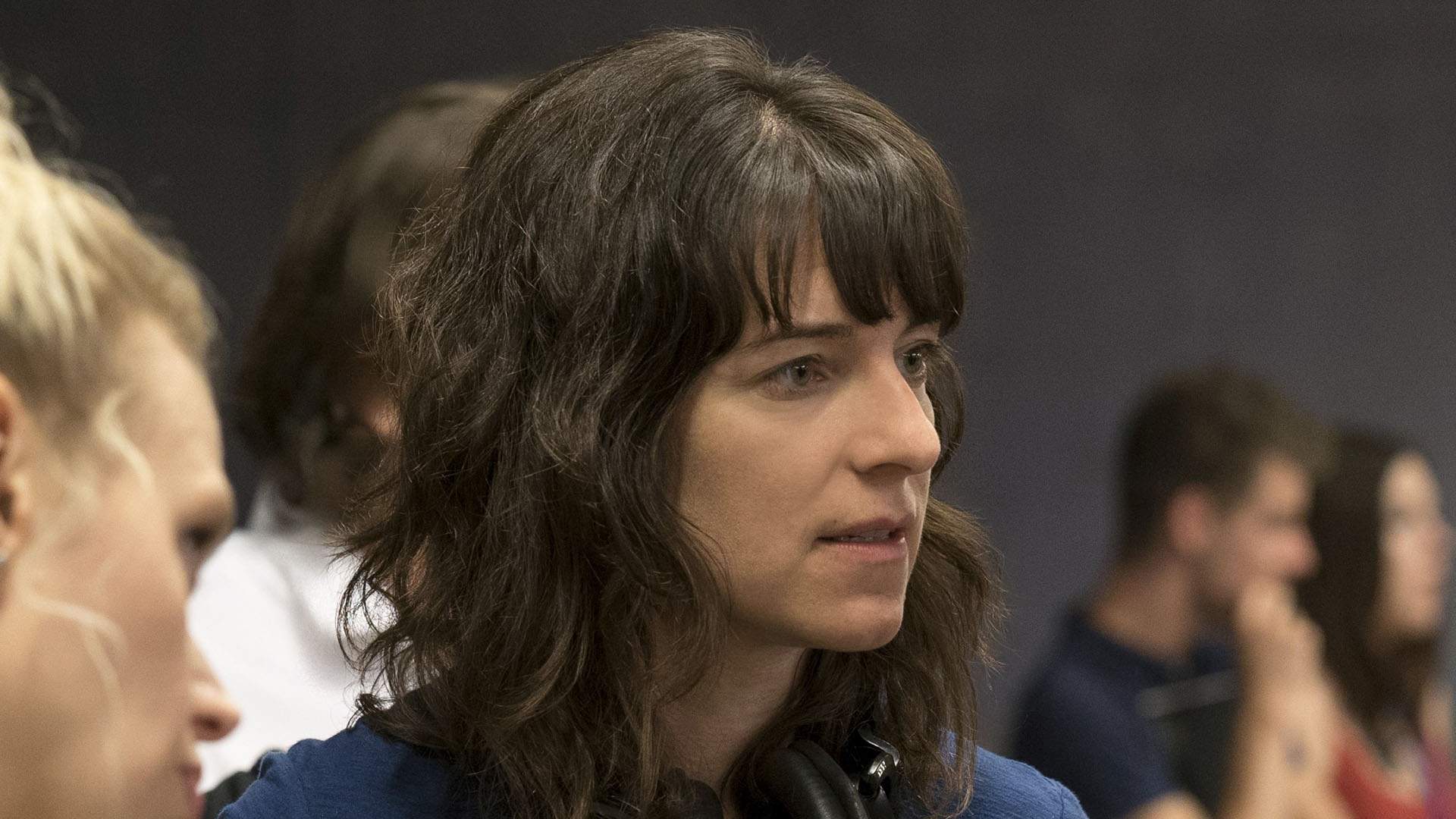
The film version of Cat Person expands beyond the narrative that Roupenian relayed with such galvanising precision. The aim: capturing how it felt to read the short story, as well as the conversation swirling around it since. The focus is still "concession-stand girl" Margot (Emilia Jones, CODA) and customer Robert (Nicholas Braun, Succession). Everything from their first meeting to their texts, and also their age gap, dates and rampant awkwardness, remains. But Fogel's film not only adds details, but also complexities and perspectives, seeing the tale's ambiguity and clashing perceptions.
The 2023 Sundance Film Festival first witnessed the end result, and now audiences in Australia and New Zealand can as well, with the movie opening in both countries Down Under in November. We chatted with Fogel about the process of bringing Cat Person to the screen — her first reactions to the short story, her thoughts on the response, the unique opportunity that is turning a viral short story into a movie, casting and continuing the Cat Person conversation all included.

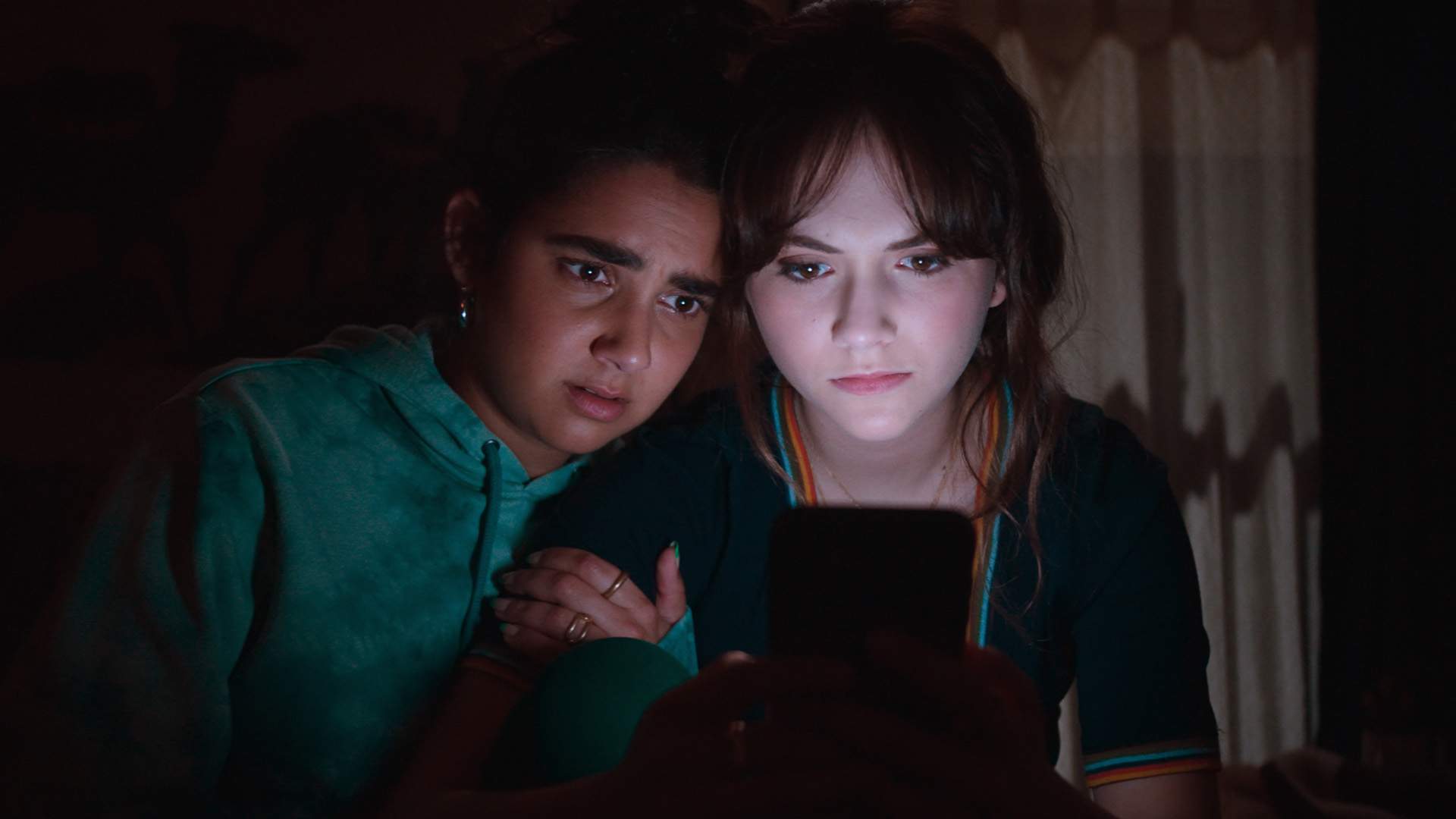
ON READING CAT PERSON WHEN KRISTEN ROUPENIAN'S SHORT STORY FIRST ARRIVED
"I did see it. I was hard to not see. It was everywhere. It was something that people talked about a lot. It was very explosive in the culture.
At the same time, I didn't see it as a movie. It's hard for me not to see things as movies just because I live in LA, and whenever something is viral or captures anybody's attention, there's going to be a stampede of people trying to make it into a film. But this one, I thought this is so brilliantly internal that I don't really know how it becomes cinematic, and how it becomes external, and how you capture what really resonated for people in a film — much less a film that people are going to see if they're men or people of all ages, which the story did have a bigger reach than just than just women.
I was concerned that a film wouldn't be able to harness that somehow. And then two years later, I read Michelle Ashford's script. I realised that there was a there was a vision behind doing that that made so much sense to me — I just would never have thought of it myself."


ON THE INITIAL RESPONSE TO CAT PERSON AS A SHORT STORY
"The story itself, by the time I came to it, I was aware that it was very explosive and controversial. And when I read it, I wasn't sure why, because I thought that this is such a perfectly observed short story. It's so specific to this woman's experience. Why are people debating it? Why are people accusing the writer of man-hating? What is what is really like triggering to people about the story?
And over time, that narrative around it became so explosive that it kind of hijacked the narrative — the narrative around the narrative became what was the most interesting thing about it. There's this undercurrent of male rage that courses through the subtext of the story, and that male rage was manifested in a very overt way among all of the people on Twitter who were arguing about the story.
So, in a weird way, it kind of proved the concept of the story itself, and that to me was what was so interesting. And when we tried to expand upon the original format of the story, that anger and the male perspective on that was something that we tried to enhance and show cinematically, just because it was so much a part of that cultural moment. It eclipsed anything about the original story itself."

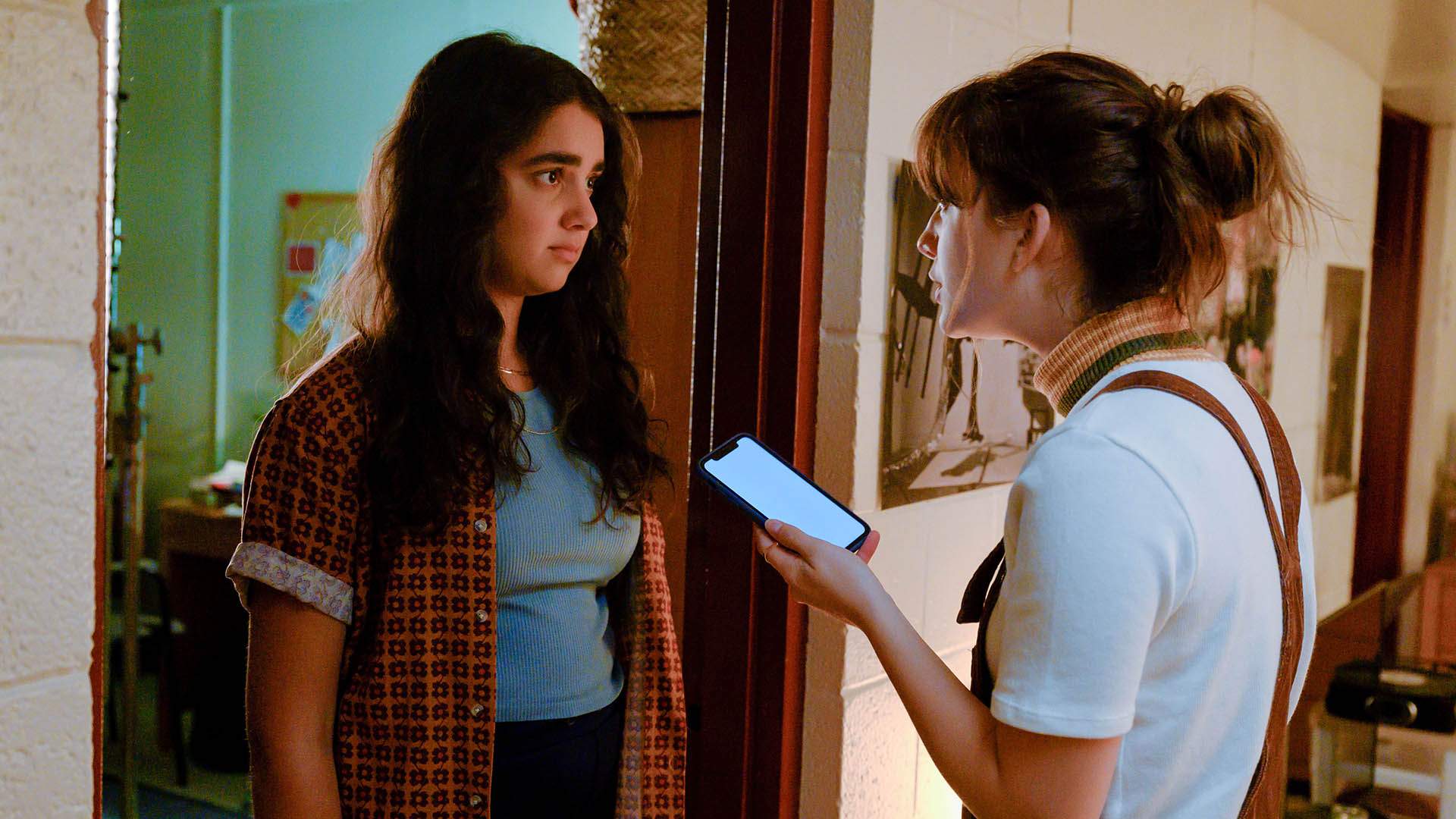
ON BRINGING A SHORT STORY THAT'S GONE VIRAL TO THE SCREEN
"It was a very unusual opportunity. I've always looked for ways to tell stories about women — granular, observant, emotionally driven, relationship-driven movies and TV shows. That's kind of my sweet spot.
But it's so often that those feel small, and they always have to be combined with another genre or a mystery or something that feels like it gives them reason to be — stories that justify their telling, in a way.
This one, obviously we did expand it genre-wise, but the fact that the story existed and was viral was a great opportunity to tell a really intimate, granular story about a woman's experience, and have a little bit of name recognition buoying the release of it, and the public interest in it.
That was a really lucky — that was a real opportunity. There's name recognition and a curiosity about something that is ultimately so personal and would normally just go in the bucket of tiny movies that five women see at a women's film festival."

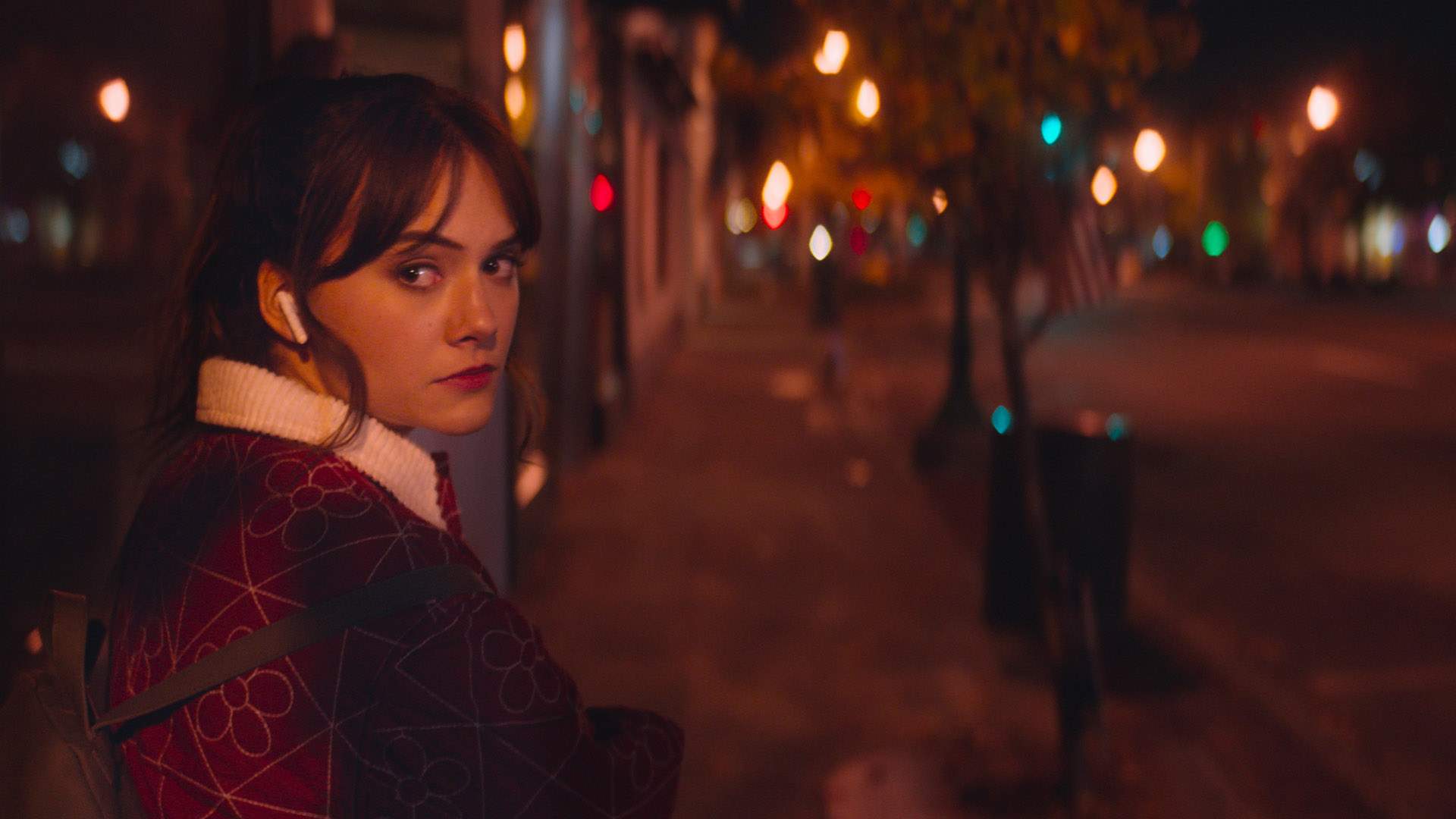
ON TACKLING A TALE THAT'S STRUCK SUCH A CHORD FOR BEING SO RELATABLE
"A different medium is always a challenge. When you take a short story that women project their experiences onto — so women are picturing themselves as Margot, women are picturing their own Robert from their own life as Robert, they're not picturing actors that I cast — trying to honour that and execute something that would resonate with women the same way as whatever was in their mind's eye when they read the story is a tall order.
I just did my best to try to pick versions of both characters that made them human enough that whatever felt really realistic and grounded to women would would be manifested here, and it wouldn't feel like we took it in this crazy direction. It definitely escalates at the end, but from a starting point of relatability was the goal.
I mean, that's always the challenge, I think. But I think from moment to moment, [it was] just making sure those performances felt grounded, making sure to cast somebody who felt really relatable to women, and felt smart and substantial — so that if she makes some dumb mistakes, you can still be rooting for her instead of dismissing her as a victim.
And just making choices that I think try to keep threading the needle with nuance was something that was important to me, so that people couldn't really dismiss either side, or come down on one extreme side or another — just to try to maintain the ambiguity of the original story."


ON THE VISION FOR CAT PERSON AS A FILM FROM SCRIPT ONWARDS
"Michelle had this brilliant idea to take a lot of what Margot was going through internally and make it manifest in a really extreme multi-genre experience of being a young woman. So, Margo's experience is that she walks through her life, and she's very pop culture savvy. She's seen movies where young women are victimised. She's seen movies where young women fall in love. She's seen movies where young women come of age. So she's seen all the reference points, and she's trying to figure out where she belongs and what her story is.
What excited me about Michele's adaptation was really that she opened the door to explore a lot of different genres, as if to say that being a young woman is a multi-genre experience. There's always a base level of fear, because we're when we're coming of age and even when we're not, we're aware that we could be overpowered on a physical level. That's always a fear that sits underneath our lives, and is ready to poke its head out at any point in time that it's triggered. But all of the things that Michelle wrote were so vivid.
And then the fears and fantasies and violence felt like I just tried to capture those as viscerally as I've experienced them myself, in the hopes that other women have also had those fears if I've had them, I hope. I don't hope other women have had them, but I hope that I'm a good ambassador to tell their story in a way that feels relatable to as many women as possible."

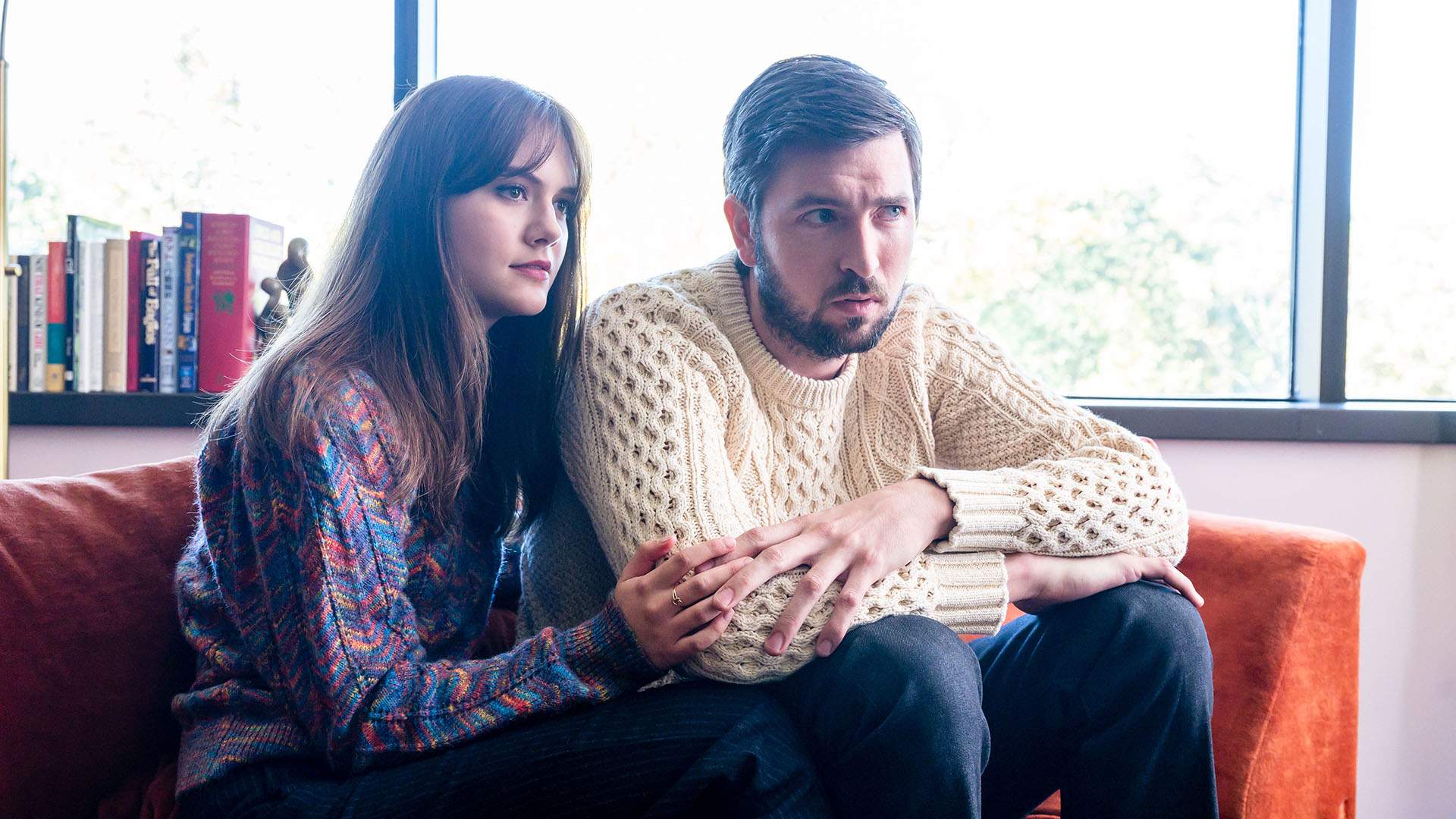
ON FINDING THE RIGHT MARGOT AND ROBERT
"Casting is always easy and hard. What's easy is if you're the filmmaker and you have a sense of who those people are in your mind, there's actors that you know you want. The challenge is that they're not always the actors who you know are the most famous or the most bankable.
Luckily we worked with StudioCanal, who were pretty open minded being a European company — they weren't as algorithm-obsessed and so they let me cast these two actors who were really on the cusp of fame and had recognition but weren't overexposed on a level where people would bring too much baggage into the viewing experience.
By the time the movie came out, people have an association with Cat Person. They're expecting to be mad. They're expecting to be relating. They're just expecting a lot going in. And I didn't want that to have a toxic alchemy with some outrage about me casting the wrong super-famous person. So I wanted it to be a little bit like these characters, these are interesting actors, maybe you've seen them but you haven't seen them in everything. You don't know who they're dating. It's not a situation where you're rolling your eyes before you even walk into the theatre.
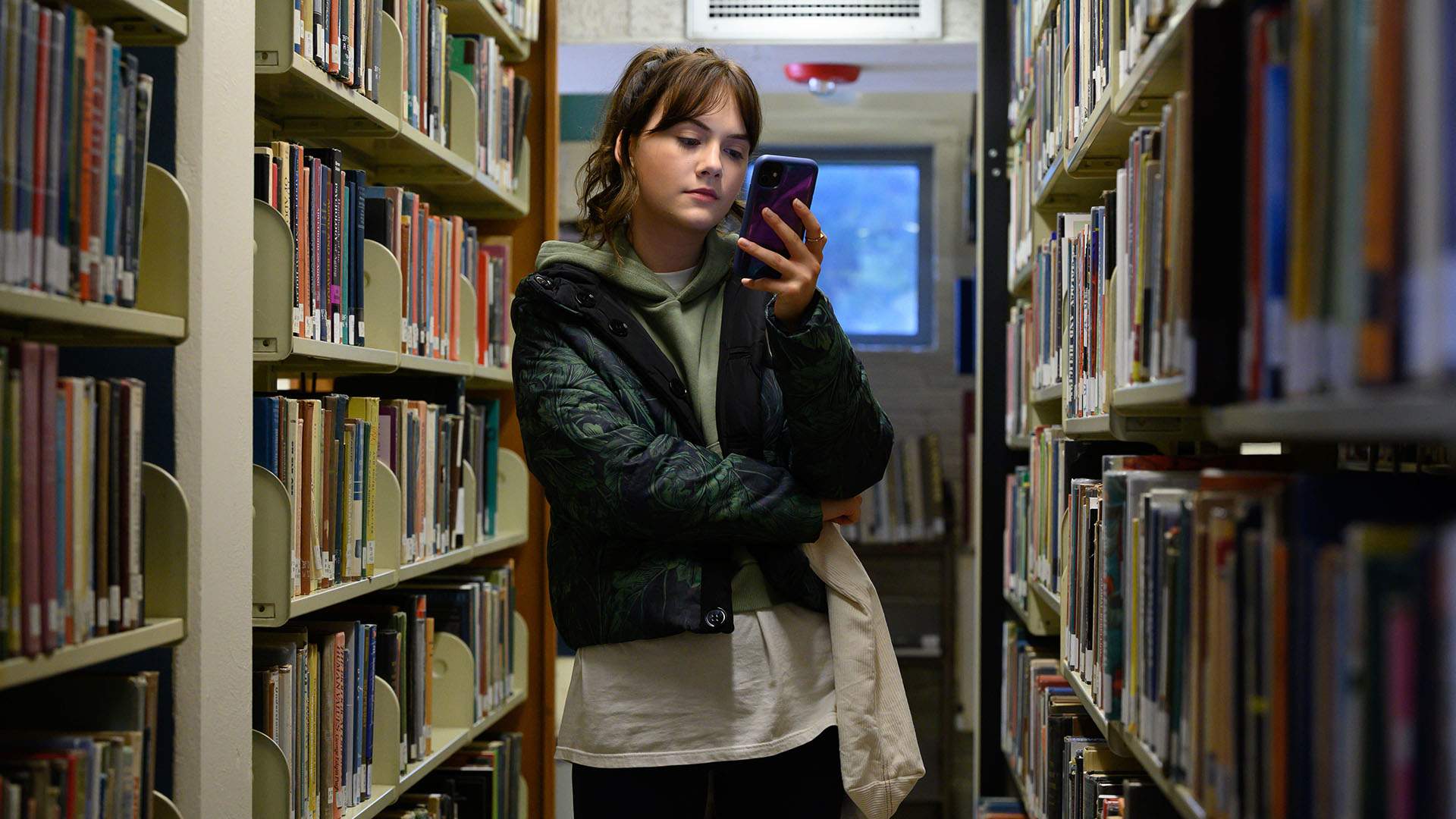
Emilia has a real soulfulness and gravitas to her that I wanted Margot to have despite her youth, so that it wouldn't be just a simple story of a young woman and an older man, and she's naive and he's inappropriate. I wanted it to be a bit more [that] he has some arrested development, but also she is presenting herself with as much maturity as she can, and she has a presence that doesn't feel adolescent to him.
Zooming out, it's inappropriate that he pursues her. But zooming into it, it sort of makes sense that she's presenting herself in a way that it would be overreaching past the bounds of her experience level or her actual maturity level. Emilia seems mature, and I thought that was important to keep Robert defensible as well. If she seemed really flighty and really young, it would be more egregiously only about her being young and not about the fact that they do have this connection, even though it's dysfunctional.
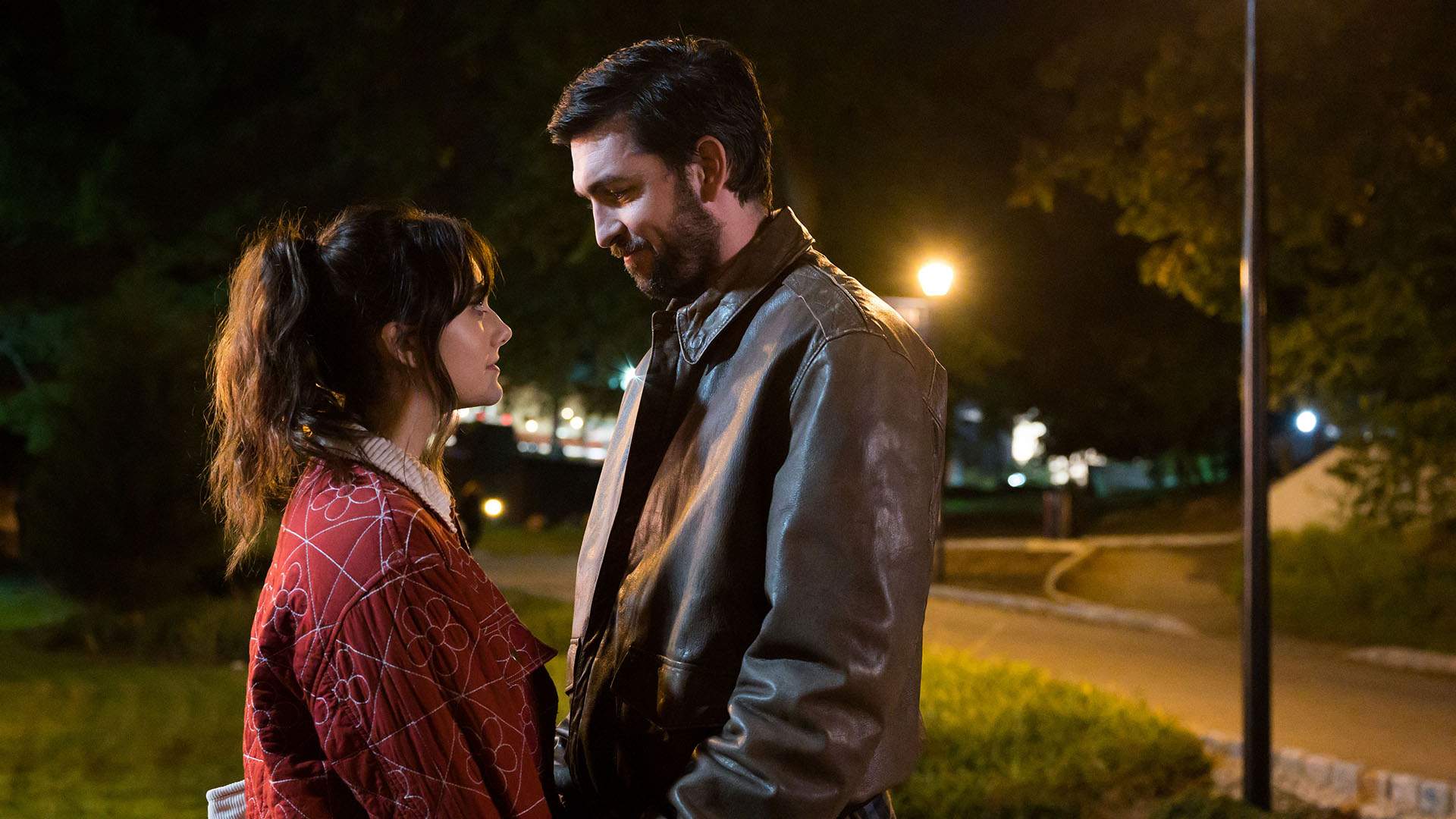
I didn't audition either of them, but I spoke to them, and they get it. They got it. They understood what was weird about the dynamic, and they were so intellectually able to do it — and I knew how talented they were on screen, that I just kind of took the leap of faith that they could do it.
They're both actors who have great comic timing, but they're not broadly comedic. They have an interesting presence, but they haven't done this role before. So it felt like they would really like invest in that challenge.
And in Nick's case, he has like a base level of likeability, especially to other men who watch Succession, that I thought that would be a good place for Robert to start — a place where men are relating to him, even if they think he's kind of a loser or whatever, they're inclined to root for him because of because of who he is."

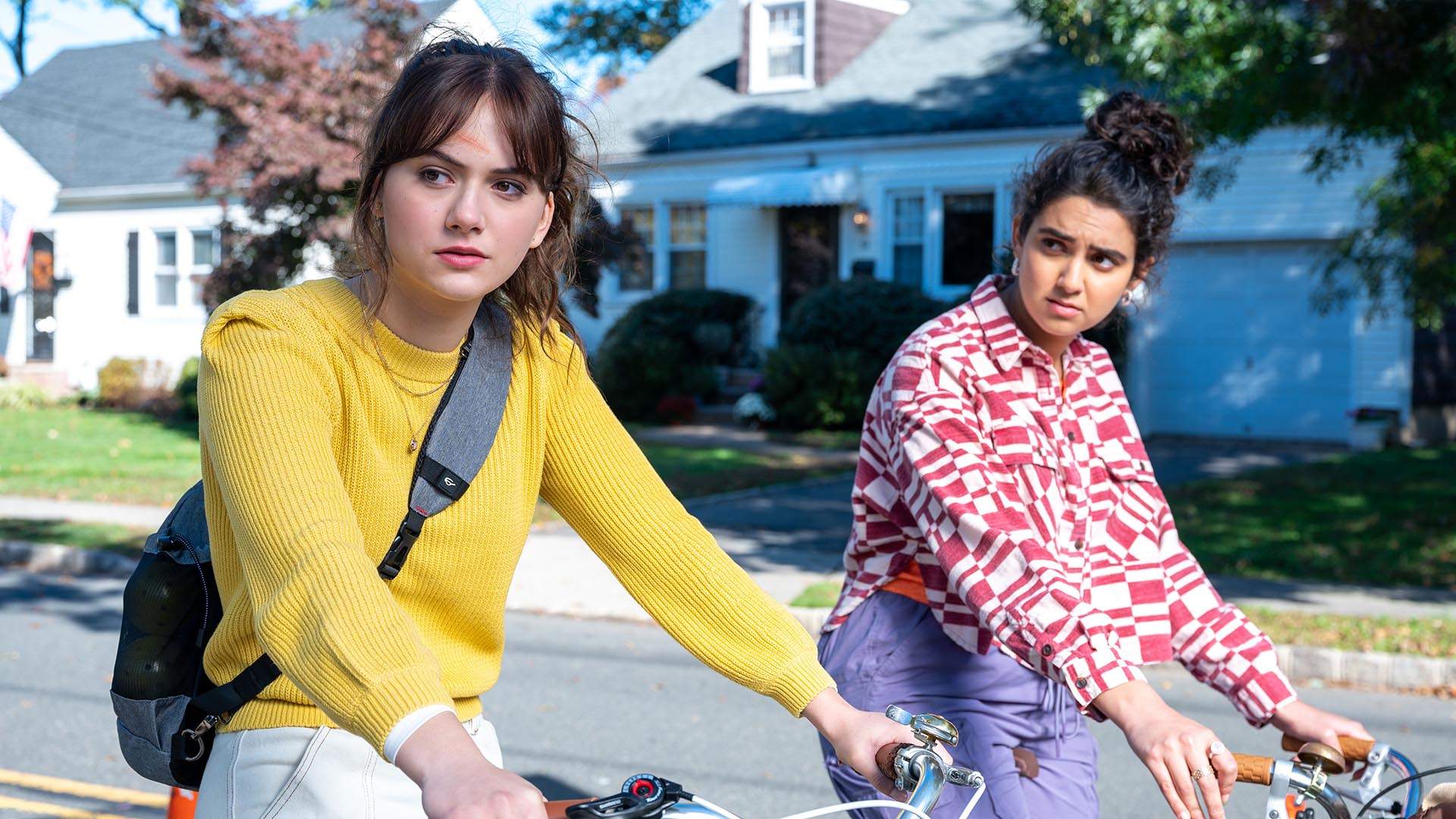
ON FOGEL'S HOPES FOR THE MOVIE'S CONTRIBUTION TO THE CAT PERSON CONVERSATION
"I would like for this movie to invite men and women to talk about their own experiences, and the differences in perception that go into relationships. I think that everybody has a story where they relate to one or both of the characters — that's why my hope is that everyone who's ever been on a date can watch that movie and say 'oh, I've been him' or 'I've been her' or 'I've been both'.
To me, I think that the movie challenges people to think about their own relationships and be more authentic with the other person, however they can be — and really give themselves permission to not know what they want, take a minute to figure out what they want, not be sure what they want, change their mind.
Those are all really important parts of dating and consent, and I'm hoping that this movie, by making people feel like they're not alone, makes people feel like 'it's okay for me to figure this out on my own timeline'."

Cat Person opened in cinemas in Australia on November 23 and in New Zealand on November 2. Read our review.
